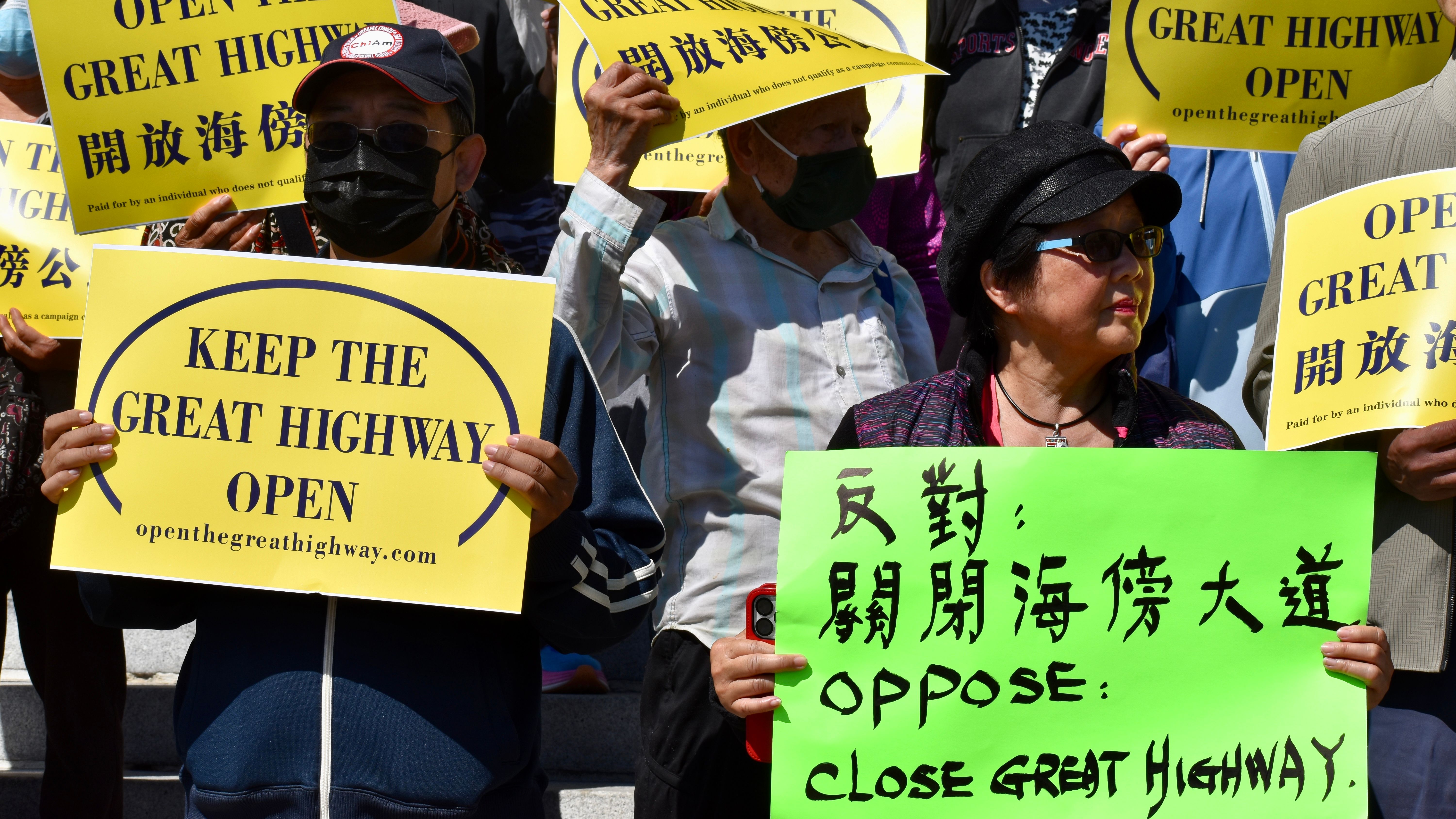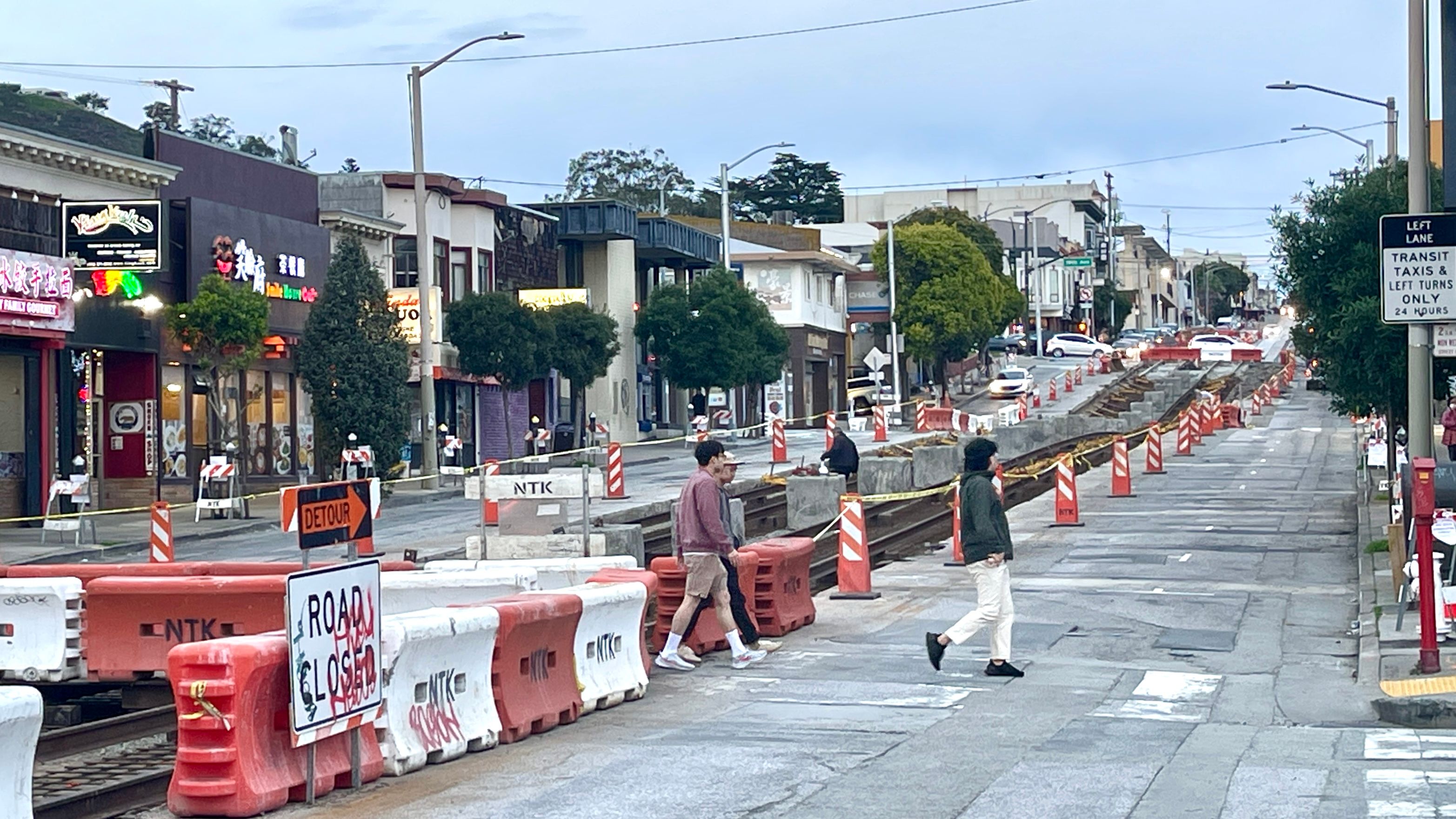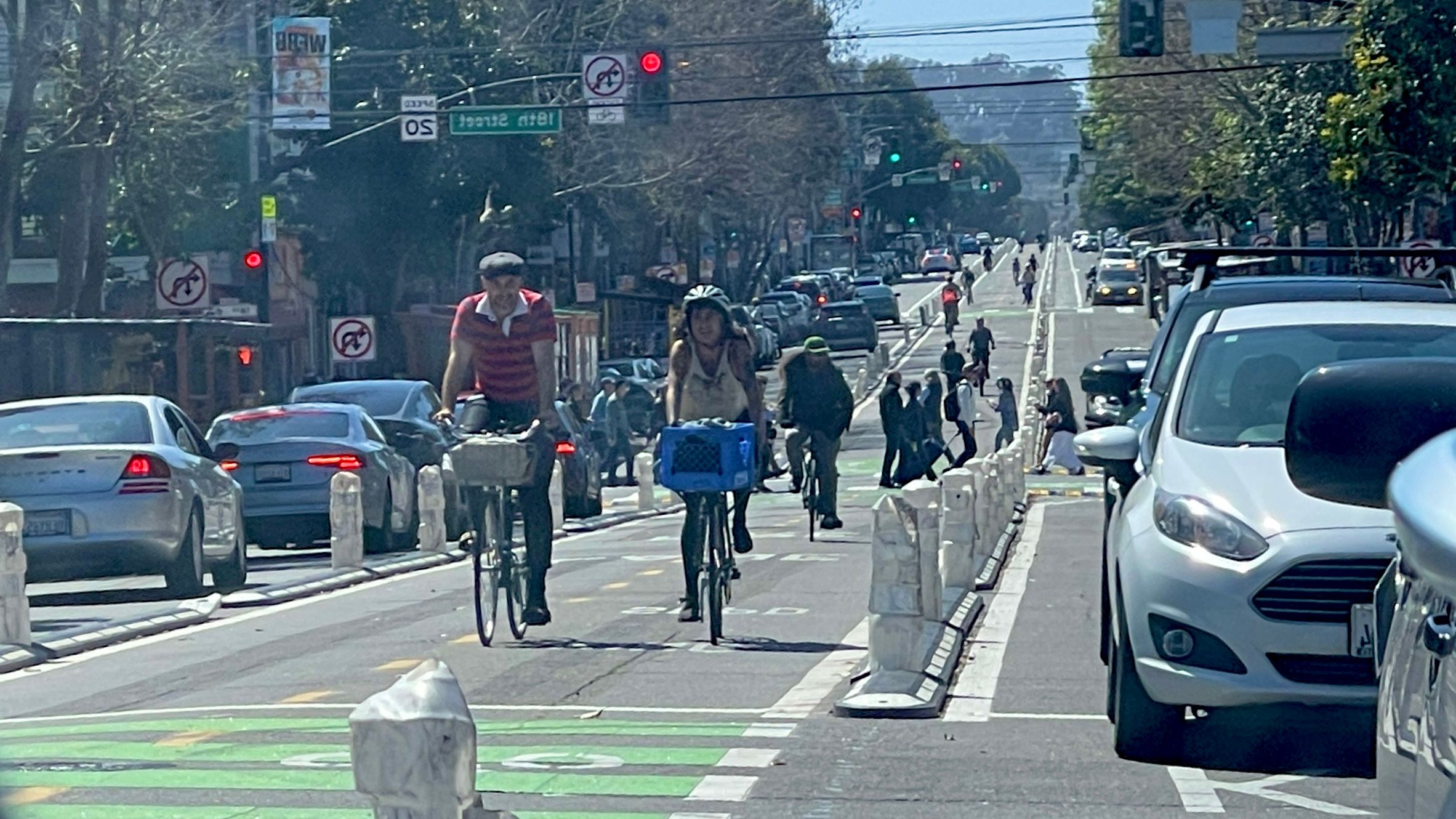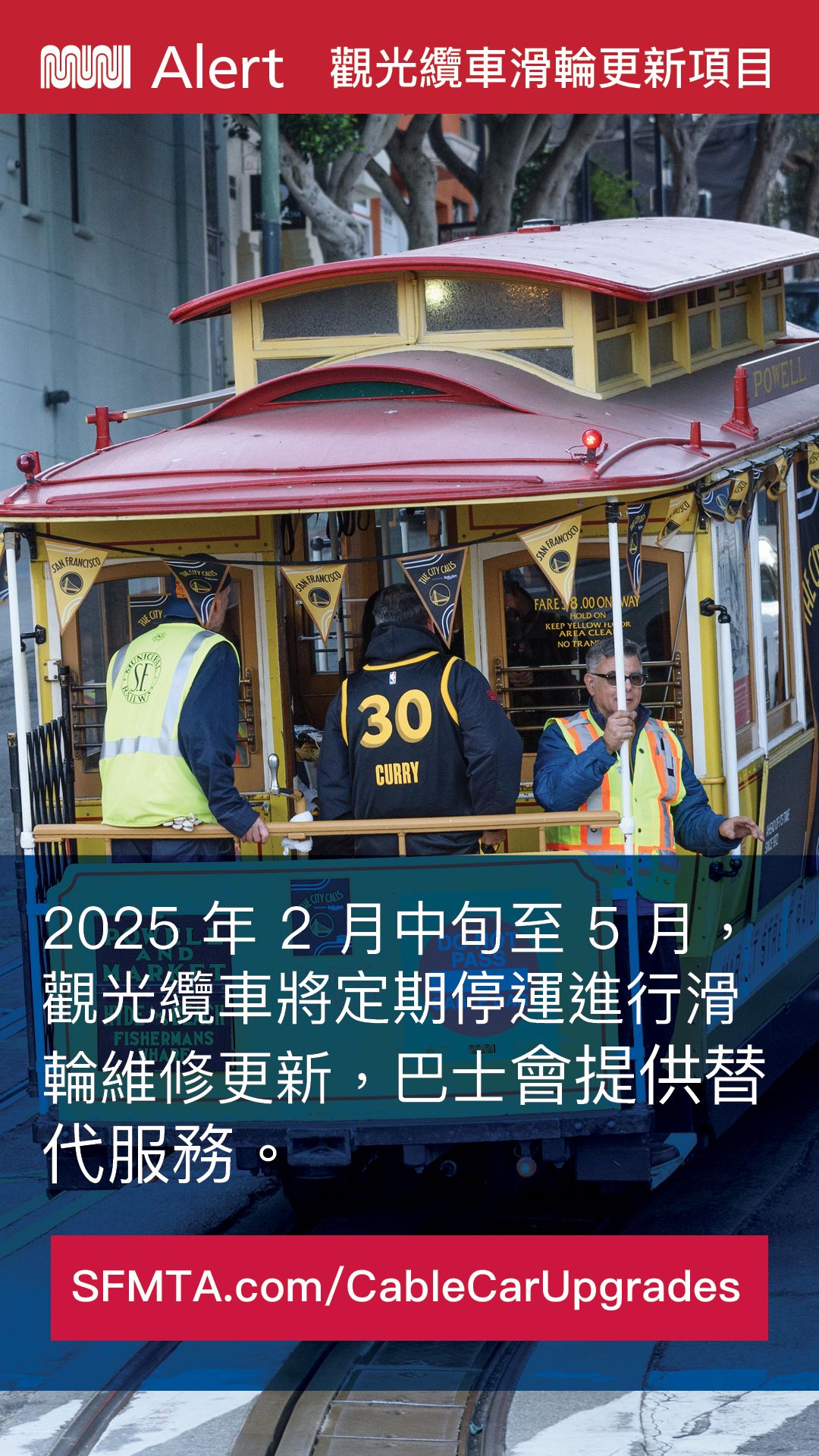Opinion: San Francisco MTA leadership change - a turning point for working families

After 5 years as the head of the San Francisco Municipal Transportation Agency (SFMTA), Director Jeff Tumlin did not renew his contract last December. Director Tumlin is undoubtedly well-intentioned in his efforts to address San Francisco's transportation challenges.
Unfortunately, his vision is too forward-thinking for many of the city’s neighborhoods and working families, and it often exceeds the understanding and acceptance of the public.
As representatives of the Sunset community whose members are mostly working families, we have engaged in discussions with him for over two years, but have yet to reach a consensus on key issues such as road closures, traffic lane reductions, and parking space eliminations.
We urge the SFMTA to not only support public transit, bicycles, and pedestrian safety but also to recognize and support the full range of transportation needs, including those of car users.
For many multi-generational families, a car is not just a convenience—it is an essential part of daily life and household management. Yet, the SFMTA has failed to acknowledge this fundamental need.
In terms of transportation policy, we advocate for a balanced, win-win approach. All modes of transportation must be considered in order to create a plan that serves everyone’s needs. Without this comprehensive view, policies will inevitably fall short.
For example, pedestrian fatalities in the city have reached their second-highest level since the launch of the “Vision Zero” initiative, which has been in place for nearly a decade. This tragic trend suggests that the current infrastructure policies are not working.
We advocate for Grade Separation — a basic principle widely implemented in countries with advanced transportation systems like China and Japan, where various modes of transport operate safely and efficiently. Unfortunately, San Francisco’s transportation policies are moving in the opposite direction.
We believe that transportation corridors should be designed to separate different modes of travel. These include merchant corridors, public transit corridors, car corridors, and slow-moving vehicle corridors (such as bikes, e-bikes, and pedestrian pathways).

For instance, in the Sunset District, Irving Street could serve as a merchant corridor, Judah Street as a public transit corridor, Lincoln Avenue as a car corridor, and Kirkham Street as a "Neighborway" primarily for slow-moving vehicles and pedestrians. Mixing these modes of transportation causes conflicts and inefficiencies.
The redevelopment of the Taraval transit corridor, for example, resulted in compensation of up to $1 million for businesses that suffered losses due to construction.
Similarly, the addition of a central bike lane to Valencia’s merchant corridor led to business closures.
Many of the "Slow Streets" initiatives are poorly optimized, whereas the Neighborway concept—which we have supported for streets like Kirkham and 20th Ave in the Sunset District — offers a more balanced and effective solution.
The introduction of Proposition K, which proposed the closure of the Great Highway without public consultation, sparked significant anger, particularly in the Western and Southern parts of the city, where the Chinese community is most concentrated. The decision to push forward with this policy, despite widespread opposition and without properly consulting affected communities, has had lasting consequences.
The outcome of the November mayoral and city supervisor elections clearly reflected this public discontent.
Furthermore, Prop K’s impact extended beyond elections—it sparked a recall movement against Supervisor Joel Engardio of District 4 (Sunset District). The petition to collect signatures for his recall is expected to begin in January.
We hope that Mayor Daniel Lurie will listen to the concerns of the public, especially those of the Chinese, Asian and working family communities who played a key role in his election.

Mayor Lurie has an opportunity to repair the damage caused by the SFMTA’s actions. San Francisco’s ongoing transportation challenges, particularly in the aftermath of the Great Highway closure, are now directly affecting thousands of working-class commuters. Many will experience delays in getting to work and face increased difficulties in managing their family responsibilities.
Additionally, a new California law, known as Daylighting, set to take effect in January, will impose fines on vehicles parked within 20 feet of any intersection in all four directions—even in areas where SFMTA has not yet marked these zones with red lines.
This “presumption of guilt” system forces ordinary citizens to prove their innocence. The enforcement of the law should be delayed until curbs are painted with strategies to minimize impact, as this law will reduce available parking by approximately 20%, creating hardship for residents.
f implemented the way it is, it will likely spark significant backlash. Such policies will not only disrupt people’s daily lives but also undermine the new administration’s ability to make other traffic improvements.
We call on Mayor Lurie to appoint an SFMTA director who understands the needs of immigrants, working people and lower-moderate income families and who will address the transportation needs of the community. Rather than imposing more restrictions that further limit our mobility—like the closure of the Great Highway—we need a transportation plan that supports and sustains our way of life.
*Better Housing Policies invites experts to provide seminars and helpful discussions on housing. It has been educating and advocating both tenants and property owners to strike a balance in their day-to-day relationships.
- Do empty yellow loading zones best serve the San Francisco Chinatown community?
- T&T Supermarket, largest Asian grocery chain in Canada, announces to open at San Francisco City Center on Geary Blvd. in winter 2026
- (Breaking news: Charlene Wang wins in the Oakland's special election) Charlene Wang runs for Oakland District 2 Councilmember on April 15, 2025 to represent Oakland Chinatown
- Mayor Lurie announces plans to support small businesses including First Year Free program waiving fees for new businesses
- 12 speed safety camera systems out of 33 begin to operate in San Francisco by first issuing warnings instead of citations for 60 days
- Taipei Economic and Cultural Office extends services with opening of its permanent home in San Francisco
- Zu Shun Lei, 90, publishes his comic books to bring joy and laughter into the community
- Prop K opponents sue to stop permanently closing Upper Great Highway for an oceanfront park






